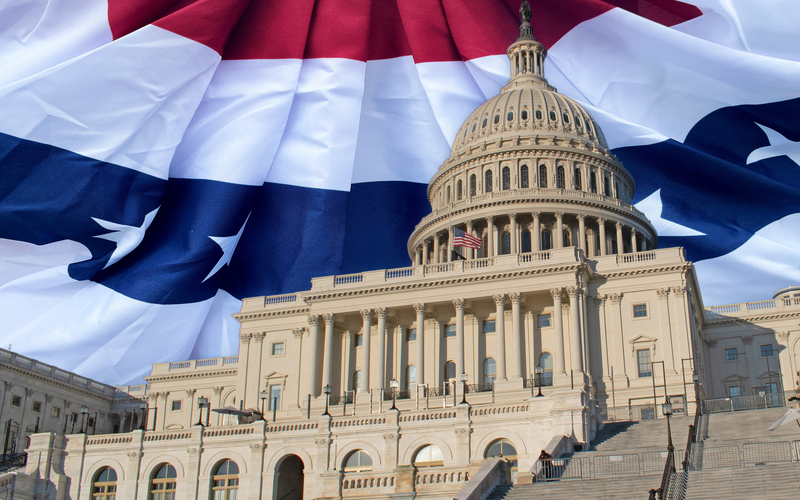This Is My Father's World
Sign up for a six month free
trial of The Stand Magazine!
Climate change is one of the most contentious and complex scientific discussions of our time. Ideologically charged discourse has distorted what should be a straightforward examination of the planet’s health, leading many Christians to feel either confused or divided about the best way to address the issue.
Dr. E. Calvin Beisner is the founder of the Cornwall Alliance (cornwallalliance.org), an organization that brings together evangelical Christian experts from various fields, including science, economics, theology, philosophy, and religious leadership. Its mission is to promote biblical principles for environmental stewardship through public education and policy advocacy.
In a recent interview with The Stand, Beisner explored key questions surrounding climate change.
The Stand: Are climate concerns legitimate?
E. Calvin Beisner: The concerns about climate change are in some ways legitimate and in some ways exaggerated. But generally, the responses to climate change that seem to dominate the discourse do very, very serious harm to the poor around the world and, frankly, to everybody else. The fears concerning climate change are exaggerated. They’re not unjustified, but they are exaggerated. The best science tells us that there’s a much more moderate sort of position that makes better sense.
TS: How do we know that concerns about climate change are exaggerated?
EB: The UN Intergovernmental Panel on Climate Change actually revealed that … in its third assessment report in 2001. It explained that because the earth’s climate is a coupled non-linear fluid dynamic system, it is, therefore, “impossible” – in the UN Intergovernmental Panel on Climate Change’s own words – to predict future global temperatures.
TS: So, are the current ways of predicting climate change faulty?
EB: What we do know is this: The computer climate models, on average, project two to three times as much warming in response to increased CO2 in the atmosphere as actually observed. In fact, some of them project far more than that. But on average, they project two to three times as much warming as actually occurs.
TS: Is the Earth getting warmer?
EB: The answer is yes, depending on what time frame you’re looking at. If we’re looking at a long enough time frame, we could say that even in the last hundred years or so, we’ve been getting cooler than it was 6,000 years ago. Six thousand years ago, during what geologists refer to as the Holocene Climate Optimum, the global average temperature was probably around 4 to 5 degrees Fahrenheit warmer than it is now – possibly even more. Now, on a shorter time scale, from about 1350 to about 1850, we had what’s called the Little Ice Age. And that cooled considerably from the previous roughly 400-year period called the Medieval Warm Period. We’ve been coming up out of the Little Ice Age, so we have warmed probably by about 2 degrees since about the middle of the 19th century.
TS: To what degree are humans responsible for climate change?
EB: Since I’m not a climate scientist myself, I’ll answer tentatively. Human contribution seems fairly small compared with natural contribution over the last couple of hundred years. But frankly, I don’t think it matters. Because the warming that we’re talking about is so small … maybe 2.4 or 2.5 degrees Fahrenheit over the last 150 years. That’s so small. None of us are worried about that in terms of the difference between nighttime low and daytime high or winter low and summer high.
TS: What’s driving the mainstream narrative concerning climate change?
EB: What history tells us is that the anti-population growth movement, which underlies much of the environmentalist movement, has driven the quest to find some rationale for depriving people of the abundant, affordable, reliable energy that is absolutely indispensable to producing plenty of food for a growing population. Our resource supplies can, in fact, far outgrow the population because people are not just consumers and polluters; we’re also producers and stewards.
TS: What energy technologies are most aligned with stewarding creation?
EB: The best energy sources that we have are nuclear, coal, oil, and natural gas. Not only are they the least expensive per megawatt hour of energy produced or per million miles of travel, but they’re also cheaper and safer. And they are better for the planet than wind, solar, and other so-called renewables. Hydro is a very fine source, but only in very limited areas where you have an adequate flow of water in natural rivers and the like. Geothermal is great, but again, it is [available] in very, very limited areas where you have the right geology.
TS: What voices in the climate conversation should be disregarded by Christians?
EB: The climate change denialists, who espouse an “it’s-all-a-hoax” way of thinking, which is totally unjustified scientifically – as well as in terms of biblical worldview. Or the opposite extreme, the alarmists: “We’re all going to hell in a handbasket, the world is going to burn up, this is an existential threat,” and so on. We’re not anywhere near there.
TS: How should Christians think about the reality and potential impact of climate change?
EB: I would summarize it this way: Anthropogenic global warming is real, but it’s unlikely to become catastrophic. It does bring some problems, but we can address those very well through adaptation rather than by trying to stop the warming. That warming could – but it won’t necessarily – be moderated, prevented, or even reversed by a new natural cycle of global cooling.
TS: How does biblical stewardship of creation come into play concerning climate change?
EB: The cost-benefit ratio of adapting to whatever future climate we face is better than the cost-benefit ratio of mitigation. Mitigation is the idea of trying to slow, stop, or reverse the warming. The costs of that enormously exceed the benefits of it. Whereas the benefits of adaptation enormously exceed the costs. And if we choose adaptation over mitigation, life after climate change will most likely be far better than it is today or ever has been.
(Digital Editor's Note: This article was published first in the April 2025 print edition of The Stand. Click HERE for a free six-month complimentary subscription.)

Sign up for a free six-month trial of
The Stand Magazine!
Sign up for free to receive notable blogs delivered to your email weekly.



















